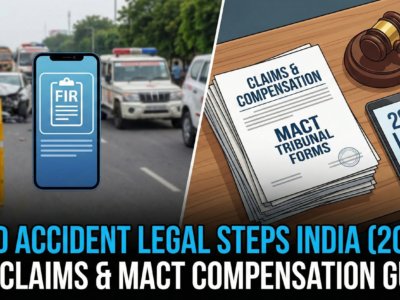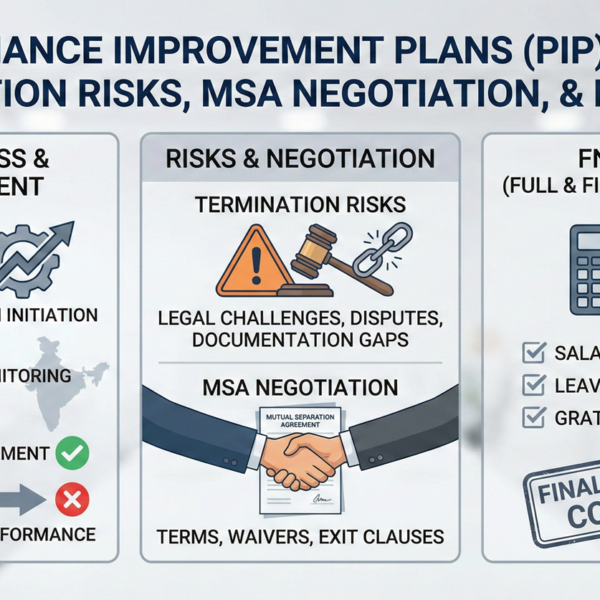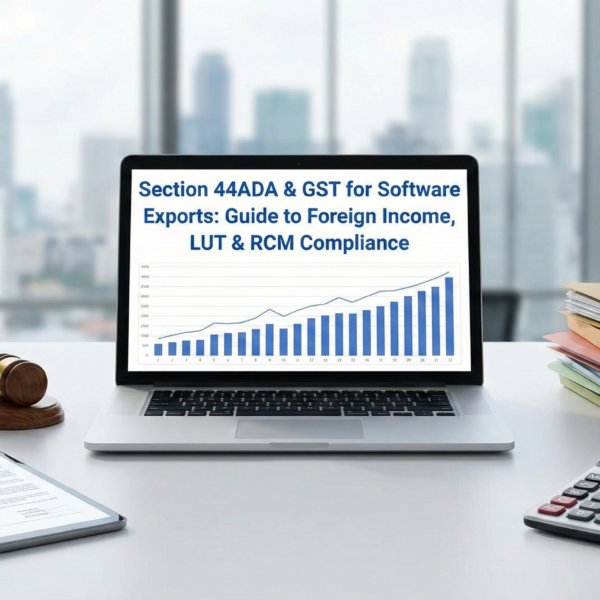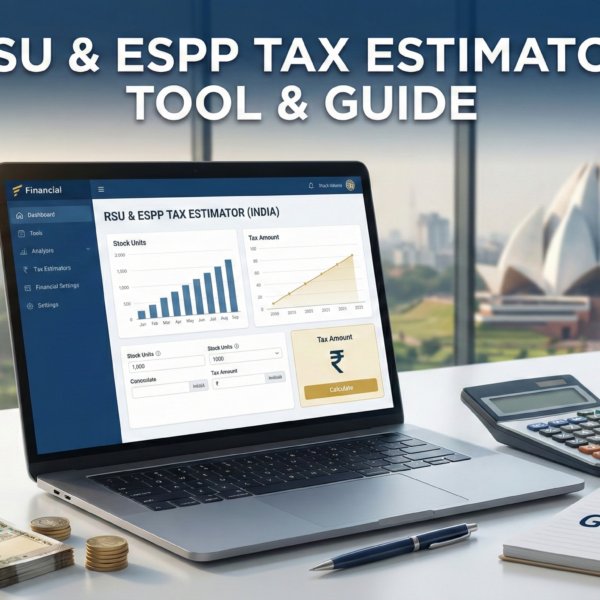Lending money to a friend is a common act of trust, but it can become a major headache when your friend is not returning the money. This situation can strain your relationship and finances, leaving you wondering about the legal action you can take in India. This comprehensive guide from Evaakil.com provides a clear roadmap for recovery. We’ll walk you through every critical step—from sending a formal legal notice for money recovery to filing a civil suit under Order 37, and explain how crucial evidence like a promissory note, bank transfer records, or even WhatsApp chats can secure your claim in court. Understand your rights and the legal recourse available to get your money back.
Friend Not Returning Money?
A Comprehensive Legal Guide to Recovering Unpaid Loans in India. Understand your rights and the best legal strategy for your situation.
Last Updated: September 15, 2025
What's Your Situation?
Select the evidence you have to find the best legal path for you.
Executive Summary
This guide provides a legal framework for recovering personal loans from friends in India. Your success hinges on two factors: a legally enforceable agreement and acting within the legal time limits. Written proof like a loan agreement or a dishonoured cheque is paramount and dictates the most effective legal path.
We'll explore civil suits, the powerful Negotiable Instruments Act for bounced cheques, and even criminal law for cases of fraud. We'll also cover the costs, alternatives like mediation, and how to find legal help in Kolkata, empowering you to make an informed decision.
Foundational Legal Principles
The Indian Contract Act, 1872
At its heart, a loan is a contract. Even an oral agreement is legally valid if it meets basic conditions like offer, acceptance, and lawful consideration. However, proving an oral agreement is challenging. The burden of proof is entirely on you, the lender.
Key Takeaway:
A written agreement is your strongest asset. For oral loans, you must build a compelling case using evidence like bank transfers, WhatsApp chats, emails, or witness testimony.
The Limitation Act, 1963: The Ticking Clock
You have a strict three-year deadline to file a civil recovery suit. This clock starts from the date the loan was due. If no date was set, it starts from the day you gave the money.
The 3-Year Limitation Period
Loan Due Date
The clock starts ticking.
3 Years
Reset the Clock!
A written acknowledgement or part-payment resets the 3-year period.
Deadline Expired
Your claim becomes "time-barred".
Pre-Litigation: The Legal Notice
Before going to court, the first official step is to send a Legal Notice through a lawyer. This is a formal demand for repayment.
- Shows Intent: It proves to the court you tried to resolve the issue amicably.
- Psychological Impact: A notice from a lawyer signals you're serious and often prompts immediate payment.
- Creates Evidence: The notice and its delivery receipt become crucial evidence in your case.
Legal Notice Template
Disclaimer: This is a sample template for informational purposes only. It should be drafted and sent by a qualified lawyer on their official letterhead to ensure legal validity.
[LAWYER'S NAME/FIRM NAME]
[Lawyer's Office Address]
Email: [Lawyer's Email] | Phone: [Lawyer's Phone]
Ref. No.: [Reference Number]
Date: 15th September, 2025
To,
[FRIEND'S FULL NAME]
S/o [Friend's Father's Name]
[Friend's Full Address]
Subject: Legal Notice for the recovery of ₹[Loan Amount]/-
Sir,
Under the instructions and on behalf of my client, [YOUR FULL NAME], S/o [Your Father's Name], resident of [Your Full Address], I do hereby serve you with the following legal notice:
- That my client and you are well acquainted as friends for the last several years.
- That on [Date of Loan], you approached my client for a friendly loan of ₹[Loan Amount]/- (Rupees [Amount in Words] only), citing urgent personal financial needs.
- That owing to your relationship, my client agreed and lent you the said amount via [Mode of Payment, e.g., bank transfer to your account no. XXXXX, cheque no. YYYYY, or cash] on the same day.
- That you had unequivocally promised to repay the said amount to my client on or before [Promised Repayment Date].
- That you have failed to repay the amount by the stipulated date. Despite my client's repeated verbal reminders and requests, you have ignored the same and have shown no intention to repay the amount due.
- That your failure to repay the legally owed debt constitutes a breach of the oral/written agreement and has caused my client significant financial distress and mental agony.
I, therefore, through this legal notice, call upon you to pay the total outstanding amount of ₹[Loan Amount]/- to my client within a period of 15 (fifteen) days from the date of receipt of this notice. The payment can be made via [Specify mode - e.g., bank transfer to my client's account, details of which can be provided upon request].
Should you fail to comply with this notice within the stipulated period, my client shall be constrained to initiate appropriate legal proceedings against you, both civil and criminal, for the recovery of the said amount along with interest, costs, and damages. Please note that in such an event, you shall be solely responsible for all consequences thereof.
Yours faithfully,
[Lawyer's Signature]
[Lawyer's Name]
Advocate
The Civil Recourse: Filing a Suit
If the legal notice fails, you can file a civil suit. There are two main types:
1. The Ordinary Civil Suit
This is the standard, comprehensive procedure suitable for all cases, especially those based on oral agreements. It's a thorough process involving multiple stages: filing the case (plaint), the friend's reply (written statement), presenting evidence, witness cross-examination, and finally, a judgment.
Best for: Claims based on oral agreements or complex disputes.
2. The Summary Suit (Order XXXVII)
This is a powerful, fast-track option available only if you have strong written evidence like a promissory note or a written contract. The key advantage is that the defendant (your friend) cannot defend the case automatically; they must first get "leave to defend" from the court. If their defense seems weak or just a delaying tactic, the court can pass a judgment in your favor immediately without a full trial.
Best for: Claims backed by a promissory note, written contract, or bounced cheque.
| Feature | Ordinary Civil Suit | Summary Suit (Fast-Track) |
|---|---|---|
| Basis of Claim | Any monetary claim, including oral agreements. | Only claims based on specific written documents (promissory notes, contracts). |
| Right to Defend | Automatic. | Restricted. Defendant must get court permission ("leave to defend"). |
| Timeline | Can take several years. | Can be resolved in a few months if the defense is weak. |
| Advantage | Allows for detailed examination of complex facts. | Speed, cost-effectiveness, and prevents frivolous delays. |
Where to File: Understanding Jurisdiction
Choosing the right court is a critical first step. Filing in the wrong court can lead to your case being dismissed after months of waiting. Jurisdiction is primarily determined by two factors:
1. Place of Residence
You can almost always file the suit in the court that has jurisdiction over the area where your friend (the defendant) resides or works.
2. Cause of Action
You can also file where the "cause of action" arose, wholly or in part. This could be:
- The place where the loan agreement was signed.
- The place where the money was given.
- The place where the cheque was supposed to be honoured (i.e., your bank's location).
Practical Tip for Kolkata:
If the loan amount is over ₹10 Lakhs and the cause of action falls within the city's original jurisdiction, the case may be filed in the Calcutta High Court. Otherwise, it would be filed in the City Civil Court at Calcutta or the relevant district court.
The Game Changer: A Bounced Cheque (Section 138)
If your friend gave you a cheque that bounced due to "insufficient funds," you have a powerful quasi-criminal remedy under Section 138 of the Negotiable Instruments Act, 1881. This is often more effective than a civil suit.
Warning:
This process has very strict timelines. Missing any deadline will invalidate your case.
Section 138: The Procedural Flowchart
Present Cheque
Within 3 months of date.
Send Legal Notice
Within 30 days of dishonour.
Wait for Payment
Give 15 days from notice receipt.
File Complaint
Within 30 days after the 15-day period ends.
Why is Section 138 so powerful?
- Presumption of Liability: The court presumes the cheque was for a valid debt. The burden is on your friend to prove otherwise.
- Criminal Consequences: The punishment can be imprisonment up to two years, a fine up to twice the cheque amount, or both. This threat is a powerful motivator for settlement.
You Won the Case! Now What? The Execution Process
A court's judgment is called a "decree." Unfortunately, a decree isn't an automatic payment. If your friend still refuses to pay, you must start a new legal process called an **Execution Petition** to enforce the court's order and actually recover the money.
From Decree to Recovery: The Execution Flowchart
File Execution Petition
You file a petition in the same court that passed the decree, asking it to enforce its order.
Court Issues Notice
The court notifies your friend (now called the 'Judgment Debtor') to comply with the decree.
Enforcement Methods
If they still don't pay, the court can take action:
- Attachment of Bank Accounts: The court can order their bank to freeze accounts and pay you from the balance.
- Attachment and Sale of Property: The court can seize and auction their movable (e.g., car) or immovable (e.g., flat) property.
- Arrest and Detention: In cases of willful default, civil imprisonment is a last resort, though rare for simple debt recovery.
Criminal Remedies: Cheating & Breach of Trust
If you can prove your friend had a dishonest intention to cheat you from the very beginning, you can file a criminal complaint under the Indian Penal Code (IPC).
- Section 420 (Cheating): Applies if you were deceived into giving the loan (e.g., they lied about the reason for needing money).
- Section 406 (Criminal Breach of Trust): Applies if you entrusted money for a specific purpose and they used it for something else.
Use with Extreme Caution:
The burden of proof ("beyond a reasonable doubt") is very high. Courts frown upon using criminal law as a mere recovery tool. This path can backfire if you don't have strong evidence of initial fraudulent intent.
The Law of Evidence: Building Your Case
The outcome of your case depends on what you can prove. Meticulously collect and organize all evidence.
Hierarchy of Evidence
Signed Loan Agreement
Promissory Note
Dishonoured Cheque
Bank Statements
WhatsApp / SMS / Emails
Witness Testimony
Recorded Calls
Digital Evidence: WhatsApp Chats & Emails
Digital communications are admissible in court but with a crucial condition. You must provide a certificate under Section 65B of the Indian Evidence Act. This is a formal declaration signed by you, testifying to the authenticity of the electronic record (e.g., the printout of the chats). Without this certificate, your most crucial evidence might be rejected by the court.
Pro Tip on Section 65B Certificate:
This certificate should state that the computer/device from which the printout was taken was in regular use by you, the information is of a type regularly fed into the computer, and the printout is a true copy of the original electronic record.
Prevention: Drafting a Simple Loan Agreement
The best way to win a legal battle is to avoid one. A simple, written loan agreement can prevent 99% of disputes. It doesn't need complex legal jargon. It just needs to be clear.
Essential Checklist for a Loan Agreement
- ✓ Parties' Details: Full name, father's name, and address of both lender and borrower.
- ✓ Loan Amount: Clearly state the principal amount in both figures and words.
- ✓ Disbursement Details: Date of the loan and mode of payment (Cheque No. XXX, Bank Transfer Ref. No. YYY).
- ✓ Repayment Date: A specific date or schedule for repayment (e.g., "on or before 31st December 2026").
- ✓ Interest Clause (If any): Clearly state the interest rate (e.g., "1% per month"). If no interest, state "This is an interest-free loan".
- ✓ Witnesses: Signatures, names, and addresses of at least two witnesses.
- ✓ Signatures: The agreement must be signed by both the lender and the borrower on all pages.
Printing this on stamp paper adds significant legal weight, though a simple signed paper is also valid evidence.
Financial Reality: The Cost of Litigation
Legal action has costs. It's crucial to do a cost-benefit analysis before you begin.
Interactive Cost Estimator (Kolkata)
Adjust the slider to estimate potential litigation costs for your loan amount. (Note: These are illustrative figures and actual costs may vary).
Alternatives to the Courtroom (ADR)
Litigation can be long, expensive, and damaging to relationships. Alternative Dispute Resolution (ADR) offers a better way.
Alternative Dispute Resolution (ADR)
- ✓ Fast & Cost-Effective: Resolves disputes much quicker and cheaper.
- ✓ Confidential: Proceedings are private, protecting your reputation.
- ✓ Preserves Relationships: Focuses on a win-win solution, not a fight.
- ✓ Flexible Solutions: Can agree on creative repayment plans.
Traditional Litigation
- ✗ Slow & Expensive: Can take years and cost a lot in fees.
- ✗ Public Record: Court proceedings are generally public.
- ✗ Adversarial: Creates a winner and a loser, destroying relationships.
- ✗ Rigid Outcomes: Court orders are less flexible.
Options like Mediation and Lok Adalat (People's Court) are highly recommended. A settlement reached in Lok Adalat is considered a final and binding court decree.
Access to Justice in Kolkata
Finding a Debt Recovery Lawyer
Look for a lawyer specializing in civil litigation and contract disputes. Use online legal platforms or referrals from trusted sources. Always have a clear, written fee agreement.
Free Legal Aid in West Bengal
If you cannot afford a lawyer, you may be eligible for free legal services from the **West Bengal Legal Services Authority (WBSLSA)**.
Who is eligible?
- All women and children (irrespective of income).
- Members of SC/ST.
- Individuals with an annual income below ₹1,00,000.
You can apply in person at your local District Legal Services Authority (DLSA) office or online.
Frequently Asked Questions (FAQ)
Strategic Recommendations: Your Action Plan
- If you have a Dishonoured Cheque: Immediately start the Section 138 NI Act process. It's your strongest weapon.
- If you have a Promissory Note/Written Agreement: File a Summary Suit under Order XXXVII for the fastest civil remedy.
- If you have an Oral Agreement: Your only path is an Ordinary Civil Suit. Meticulously gather all corroborative evidence (chats, bank transfers, witnesses).
- Universal First Step: Always start with a formal Legal Notice through a lawyer.
- Be Smart, Not Just Right: Propose mediation or another form of ADR before filing a suit. It's faster, cheaper, and might save your relationship.









